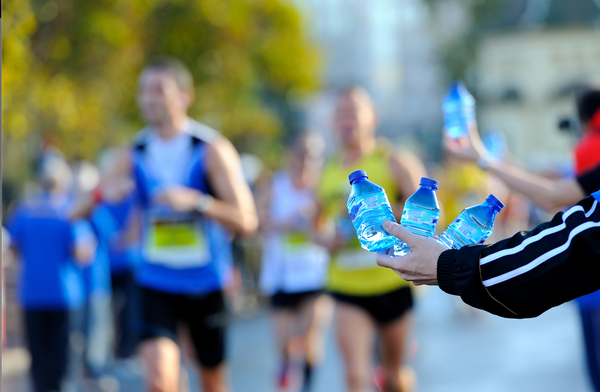In a previous article on this blog, we considered some elementary tips that "amateur" athletes should follow to challenge themselves when training for long-distance running. And now the "big day" is approaching!
So what should we do? Maintain our dietary profile or change it significantly? What about on race day, before the start? Is the timing of the race relevant? What about nutrition for a sustained effort?
Very often, committed athletes, and particularly runners, who base their choices on previous experiences, opt for some sort of self-defined "menu" for the days leading up to the race and on the day of the event. Indeed, certain food choices might have detrimental or beneficial effects on performance. Let us therefore look at some general suggestions.
In the pre-race period and on the day of the event, it is common sense to stick to foods that our bodies are familiar with. The big day is not the time to experiment with new nutrients.
The main aim of the pre-run diet is to prevent hypoglycemia (low blood sugar) and its known side effects, such as fatigue and muscle weakness. We want the glycogen reserves of our muscles to be fully charged for maximum energy and avoid the unpleasant distraction of hunger during competition.
Despite the best of intentions, some of us may belong to the group of athletes who do not eat before events. Several studies have reported that regardless of the level, and possibly associated with emotional or mental stress, as many as 30-50% of athletes experience a range of digestive disorders if they eat shortly before competing. In this case, it is advisable that you eat well the day before the race and also on the day itself if the event takes place later in the day.

Here are some basic rules to follow that can be summarized in 3 'key words': carbohydrates, hydration, and good sense.
- Daily intake of carbohydrates must be adequate to keep the glycogen reserves high. Conversely, we must limit our intake of fats and proteins, as they take longer to be discharged from the stomach and fully metabolized. Complete digestion takes up to 3-4 hours, so we should consider liquid meals such as 'shakes' when our digestive systems are easily upset.
- The day before the event, it is advisable that we drink extra water before bedtime as well as “but not excessively” 5-10 minutes before the run. It is extremely important to re-hydrate after the event! According to a very simple calculation, every 500 g of weight lost should be 'compensated by at least 2-3 glasses of water'.When events last longer than an hour, we should consider consuming dedicated 'sports drinks'. They are designed to replenish the electrolytes lost through perspiration and provide our muscles with some of the carbohydrates we need to continue training.
- Of course, the time schedule of the event matters! If the event takes place early in the morning, it would be better to eat a carbohydrate-rich dinner the night before and a very light breakfast (perhaps just a banana and a yoghurt) at least an hour before the start.
This is the basic, sensible nutritional conduct that athletes should follow. In addition to these core nutritional tips and for better training, it is worth considering regular supplementation with a botanical extract (mango leaf extract). This has been scientifically proven to improve our stamina and energy levels. In greater detail, bioactive molecules contained in the extract have been demonstrated to be able to activate the endogenous system that counters the unavoidable stress associated with high intensity, long-lasting physical efforts.
In addition to bioactive compounds, the extract also contains protein, fiber, and minerals, which contribute to improving our performance, reducing symptoms of fatigue, and keeping our heart rate steady. It is a valuable performance-enhancing support!
TravelSana, the unique fast-acting line of natural products dedicated to travelers. At your best anywhere, naturally!


